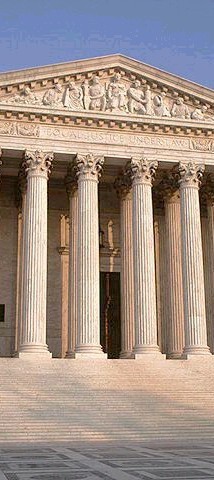Ballot Box Integrity Versus
Voters Without Borders
by Ken Blackwell - January 3rd, 2008 - Townhall.com
On January 9, the U.S. Supreme Court will hear arguments for one of the biggest election law cases in years. This case might decide who becomes president of the United States in a close election, and shape the future of the country.
[snip]
There are two different ways to look at this case. The first is it burdens poor people and racial minorities more than others because they . . . . are statistically less likely to have licenses or passports. The other way of looking at this case is that it’s about protecting our democratic system from being usurped by those perpetrating fraud to steal elections.
As passionate as people get about specific candidates, there are two issues that are frightening those of us who love our country and think of ourselves as conservatives or libertarians. The first issue is the status of free speech; under attack by the FEC due to McCain-Feingold, plus there is a war to reinstate the so-called "fairness doctrine" so that conservatives can be forced off talk radio.
The other issue is the war over whether only citizens who have responsibly registered shall elect our public officials. Democrats want to let voting happen with no controls. In California even illegal aliens and college students from out-of-state are encouraged to vote by the democrats.
However our courts have not indicated any reluctance to grant rights to foreigners with regard to welfare and eliminate rules for the right of the poor to government entitlements. The court tyrants could easily throw out controls over voting as well and allow anyone to vote, as many times as they wish.
The most interesting comment in this article is the fact that 4600 more votes were cast in Wisconsin in 2006 than the number of registered voters. How can such obvious corruption stand? If our courts truly believed in the rule of law, this would not be tolerated. It was not just tolerated, the elections were declared valid. Depending on how the court rules in the Indiana case, it could get much worse.


0 Comments:
Post a Comment
Subscribe to Post Comments [Atom]
<< Home